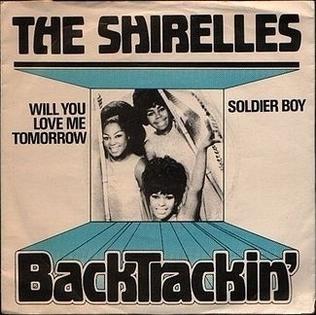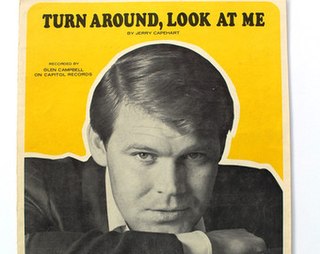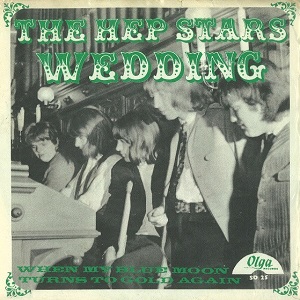
Howard Greenfield was an American lyricist and songwriter, who for several years in the 1960s worked out of the famous Brill Building. He is best known for his successful songwriting collaborations, including one with Neil Sedaka from the late 1950s to the mid-1970s, and near-simultaneous songwriting partnerships with Jack Keller and Helen Miller throughout most of the 1960s.
"Gonna Get Along Without Ya Now" is a popular song written by Milton Kellem and published in 1951. Originally written in English, the first known recorded version was released in 1951, by Roy Hogsed. Since then has been done in several styles and tempos.

"In the Still of the Nite", also subsequently titled "In the Still of the Night", is a song written by Fred Parris and recorded by his band the Five Satins. Originally the song was titled "(I'll Remember) In the Still of the Nite" to distinguish itself from Cole Porter's "In the Still of the Night". Later the title was changed to "In the Still of the Night".

"Will You Love Me Tomorrow", sometimes known as "Will You Still Love Me Tomorrow", is a song with words by Gerry Goffin and music composed by Carole King. It was recorded in 1960 by the Shirelles at Bell Sound Studios in New York City, and hit number one on the Billboard Hot 100 chart. The song was the first by an African-American all-girl group to reach number one in the United States. It has since been recorded by many other artists including a 1971 version by co-writer Carole King.
"Dedicated To The One I Love" is a song written by Lowman Pauling and Ralph Bass that was a hit for the "5" Royales, the Shirelles, the Mamas & the Papas and Bitty McLean. Pauling was the guitarist of the "5" Royales, the group that recorded the original version of the song, produced by Bass, in 1957. Their version was re-released in 1961 and charted at number 81 on the Billboard Hot 100.

"Turn Around, Look at Me" is a song written by Jerry Capehart and Glen Campbell, though Campbell is not officially credited.
"Bermuda" is a song written by Cynthia Strother and her father Eugene Rex Strother, which was initially performed and released in 1951 by 16-year-old Cynthia and her younger 11-year-old sister, Kay Strother, who performed together under The Bell Sisters moniker for RCA Records. Their recording of the song featured Henri René and His Orchestra.
"Count Every Star" is a song written by Bruno Coquatrix and Sammy Gallop and first released by Ray Anthony and His Orchestra. It reached number 4 on the US pop chart in 1950.

"Speedoo" is a song written by Esther Navarro and performed by The Cadillacs featuring the Jesse Powell Orchestra. It reached number 3 on the U.S. R&B chart and number 17 on the U.S. pop chart in 1955. The song was featured on their 1957 album, The Fabulous Cadillacs. The lead vocal was by Earl Carroll.

The Willows are an American doo-wop group formed in Harlem, New York, in 1952. The group was an influential musical act that performed into the mid-1960s and had a Top 20 R&B hit with "Church Bells May Ring", a song which was covered with greater commercial success by The Diamonds.
"Meet Mister Callaghan" is a 1952 song written by Eric Spear and performed by Les Paul in a hit recording.
"Please, Mr. Sun" is a song written by Ray Getzov and Sid Frank and performed by Johnnie Ray featuring The Four Lads and the Jimmy Carroll Orchestra. It reached number 6 on the U.S. pop chart in 1952. It was featured on his 1955 album I Cry for You.
"Say You're Mine Again" is a song written by Charles Nathan and Dave Heisler and performed by Perry Como featuring The Ramblers. It reached number 3 on the U.S. pop chart in 1953.
"Sorry (I Ran All the Way Home)" is a song written by Artie Zwirn and Harry Giosasi and produced and arranged by LeRoy Holmes. The single was performed by New York-based doo-wop group The Impalas. It reached #2 on the U.S. pop chart, behind both The Happy Organ by Dave "Baby" Cortez and Kansas City by Wilbert Harrison. It also went to #14 on the U.S. R&B chart. Overseas, "Sorry (I Ran All the Way Home)" went to #28 on the UK Singles Chart in 1959. The song was featured on The Impalas' 1959 album, Sorry (I Ran All the Way Home).
"With These Hands" is a song written by Benny Davis and Abner Silver and performed by Eddie Fisher featuring Hugo Winterhalter and His Orchestra. It reached number 7 on the U.S. pop chart in 1953.
"Mission Bell" is a song written by William Michael and Jesse Hodges and performed by Donnie Brooks, with backing vocals by The Blossoms. It reached number 7 on the U.S. pop chart in 1960. It was featured on his 1961 album, The Happiest.

"Ooh Poo Pah Doo" is a song written and performed by Jessie Hill. It was arranged and produced by Allen Toussaint. The single reached No. 3 on the Billboard R&B chart and No. 28 on the Hot 100 in 1960.

"Sha La La" is a song written by Robert Mosely and Robert Taylor. The Shirelles released the original version of the song as a single in 1964 which reached #15 on the U.S. R&B chart and #69 on the U.S. pop chart.
"Close Your Eyes" is a song written by Chuck Willis and performed by The Five Keys. It reached number 5 on the U.S. R&B chart in 1955.

"Wedding" is a song written by Swedish musicians Benny Andersson and Svenne Hedlund, first recorded as the eleventh single by their group the Hep Stars in May 1966. "Wedding" was the second single in which the Hep Stars ventured into baroque pop, something that they'd done on their previous single "Sunny Girl" in March 1966.









